Excellent but Easy to Used Recording Software
Useful Item Guide
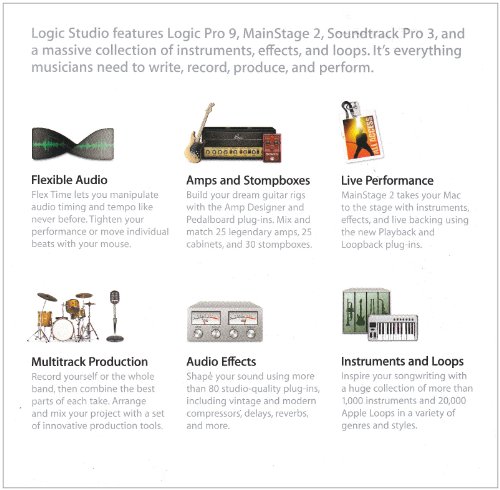 In the recent past, music recording was something that was only associated with specialized studios, with heavy, and expensive music equipment. There was said to be a big learning curve. People keen on music recording and producing used to have to go through a series of hurdles, such as enrolling in a relevant program or spending time in a studio with a professional. This isn't easy for someone who wants to learn music-making as a hobby, or just as a part-time affair. Previously, even if you had to record a demo of your song or music tunes, you had to go through some serious studio time, which often came at a hefty cost. All this, and much more, has changed now, thanks to advancements in technology, e-commerce, and music developers that are willing to help out the masses.
In the recent past, music recording was something that was only associated with specialized studios, with heavy, and expensive music equipment. There was said to be a big learning curve. People keen on music recording and producing used to have to go through a series of hurdles, such as enrolling in a relevant program or spending time in a studio with a professional. This isn't easy for someone who wants to learn music-making as a hobby, or just as a part-time affair. Previously, even if you had to record a demo of your song or music tunes, you had to go through some serious studio time, which often came at a hefty cost. All this, and much more, has changed now, thanks to advancements in technology, e-commerce, and music developers that are willing to help out the masses.
Due to technology our devices at home, such as PC, laptops, tablets and cell phones, are now much more powerful. These devices are now powered with hardware which enables them to host a low budget recording studio at home. With a few wisely-chosen recording gears, dedication, and a love for music, almost anyone can form a small recording studio at home - and at pretty low cost, without too much of a learning curve. What this means now is that young and inspiring music developers can get ample hands-on experience of software, hardware, and tools right from the comfort of their homes. The next big music sensation of the world could, right now, be headbanging and producing some great music from his home. All they need is a great DAW, like the ones mentioned above, to create the perfect home studio.
This guide will tell you how to start with music-making software if you're a beginner, have intermediate skills, or an expert in the field already.
Let's start with some of the most commonly asked questions by people looking to buy music-making software.
In this phase, we will be giving answers to some of the most commonly asked questions by music producers.
1. What is a digital audio workstation (DAW)?
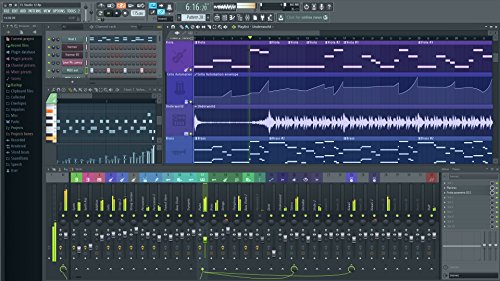 A computer in itself is nothing unless you have the proper software installed. In layman's terms, software helps humans communicate with the computer system. The software understands our input, and then conveys the same to the hardware.
A computer in itself is nothing unless you have the proper software installed. In layman's terms, software helps humans communicate with the computer system. The software understands our input, and then conveys the same to the hardware.
When it comes to the music industry, it's the software that turns your computer into a music-making powerhouse, enabling you to make magic. We're talking about the digital audio workstation here. It's that very software which is capable of mixing, recording, and mastering music tracks. This software is also known as a sequencer at times.
The market is saturated when it comes to popular DAWs. They are available with a variety of price tags and features. From costing nothing to thousands of dollars, digital audio workstation software can turn your home into an electric music production powerhouse, when installing on your PC or Mac . This software usually enables you to arrange an almost unlimited number of music tracks. With music-making software, it feels like you have the whole world in your hands. So, if you're a solo musician who wants to have an entire orchestra backing you, you have to buy the right DAW for you.
2. Free vs. Paid DAW's
As they say, all good things in this world have a price.
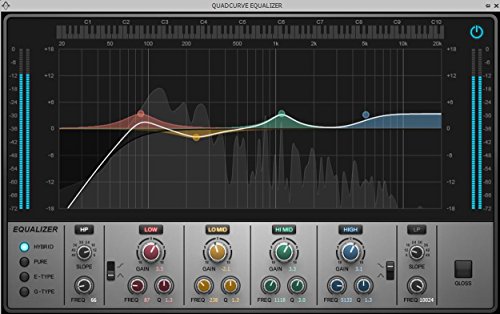 This question is probably the most asked by beginners, and you shouldn't blame them. When you're starting something and not sure what the future holds, you might not feel like you should invest in software. We're not totally against free DAWs, but as things get serious, you should invest in a better, paid version.
This question is probably the most asked by beginners, and you shouldn't blame them. When you're starting something and not sure what the future holds, you might not feel like you should invest in software. We're not totally against free DAWs, but as things get serious, you should invest in a better, paid version.
One of the most common problems with the free digital audio workstation is the fact that it doesn't let you create professional sounding music tracks. There are a lot of limitations that you sometimes deal with, it's your creativity and music that ultimately suffers. The free DAWs are usually pretty, with a nice, easy to use interface, but they typically don't have the ability to polish up tracks like paid ones. So, yes, you can make a start with this free music making software, but don't expect your output to be a masterpiece. Some free DAWs may have the feature of VST instruments, but they are likely to freeze your computer, or become slow when using multiple features at the same time.
Investing in a paid DAW is worth the money, even if you're a beginner, or just taking music-making up as a hobby. Your output will be awesome with this software, and you can showcase your skills easily to friends on social media. There is one thing to keep in mind, though – when buying a DAW, make sure that you avoid those bootlegged versions as that don't support updates. Updates to your DAW software are important, as they usually contain bug fixes, new instruments, effects, and more. It's always better to pay a few hundred dollars in exchange for a lifetime update and stable software that can enhance your skills.
So, our final say would be that paid DAWs are capable of a lot more, and when talking about value for money, they are worth it.
3. How to choose your production software
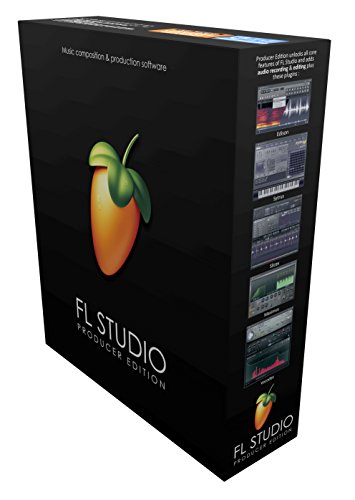 We've already discussed that the market for software is pretty saturated, even when you talk about the paid versions. When you're deciding on which music making software to buy, you should be careful. Choose the best one for your needs, and the one that can go along with your music in the future. Keeping all that in mind, we've decided to help you make the right choice.
We've already discussed that the market for software is pretty saturated, even when you talk about the paid versions. When you're deciding on which music making software to buy, you should be careful. Choose the best one for your needs, and the one that can go along with your music in the future. Keeping all that in mind, we've decided to help you make the right choice.
Your Budget
Of course, this is the most important. You don't want to buy anything too fancy, especially if you're new to the music industry. To make the right choice here, we've only got one suggestion for you – research, research, and research. Talk to people who are already in the industry about which software to buy in a budget. The Internet is also a good place to read some reviews about the products you're intersted in. You can then do a comparison yourself. It's also important to set your budget. That is, how much you can afford to spend on a DAW, as other things might require a budget too. Once you have the budget set, it would be easier for you to make a decision.
Experience Level
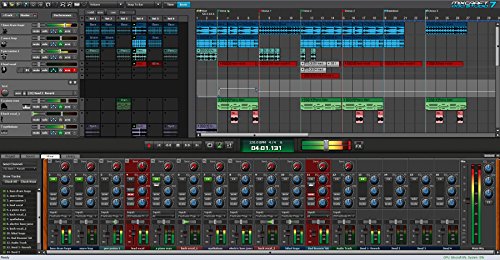 The second consideration, while you are selecting a DAW, should your experience level. If you are a beginner you shouldn't look for fancy stuff, as most of the features in it would be useless at your level. Why pay for something you're not likely to use in the future?
The second consideration, while you are selecting a DAW, should your experience level. If you are a beginner you shouldn't look for fancy stuff, as most of the features in it would be useless at your level. Why pay for something you're not likely to use in the future?
For a beginner, it's a good idea to list down the features you need, and then buy something that's close to what you require.
If you're a musician at an intermediate level, you should also do the same as above. List your requirements and buy software that is a right for, not only your skills, but your budget as well.
Things are different if you're a professional. You should be investing in software that's the complete package. Buying the best DAW out there should be your number one priority. So, don't think much about the price, but the benefits and features it has on offer.
Performing Live
Let's admit it; nothing pleases a musician more than a live performance. Live performances are what differentiates between an average and a great musician. If you're ready to prove your metal in the music industry, you have to show your skills during a live performance. Some advanced DAW software can help you achieve just that. So if you're ready to rule during a live performance, your DAW should be able to complement you.
4. Which DAW is best for electronic music?
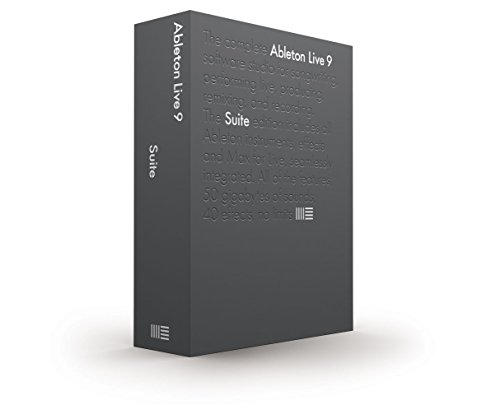 When it comes to electronic music, the choice of the DAW becomes increasingly important. DAW helps musicians produce beats and input mixes together. For modern music producers, it's hard to imagine life without a DAW, but the ultimate question here is: which one should you buy? We've decided to compile the best choices for readers who're making an entry to electronic music production, and for those who are already a pro in the field.
When it comes to electronic music, the choice of the DAW becomes increasingly important. DAW helps musicians produce beats and input mixes together. For modern music producers, it's hard to imagine life without a DAW, but the ultimate question here is: which one should you buy? We've decided to compile the best choices for readers who're making an entry to electronic music production, and for those who are already a pro in the field.
Ableton is easily one of the best choices for electronic music producers. With its modern features, Ableton is specially designed for electronic music. Electronic music producers can do almost everything with this software because it sounds just as good in live performances as it does in the studio.
Cubcase is probably one of the oldest DAWs for electronic music producers. While this software might not be as easy to learn as some of the others, once you master it, the sky is the limit.
FL Studio can also be your best friend if you're producing electronic music. It's one of the favorites of the industry, especially if you're a hip hop fan. This great software is only available for Windows, however. Hard luck for Mac users here.
Now let's move on to different music softwares for different skill sets.
Software Subscriptions - Be sure to consider whether you'd prefer a DAW with a subscription or single-license model. While not all DAWs offer this flexibility, this can be helpful especially if you use one DAW for producing and another for mixing. This factor will also affect your budget and how many computers you can license your DAW to simultaneously.

Recording Software for Each Experience Level
1.Beginner
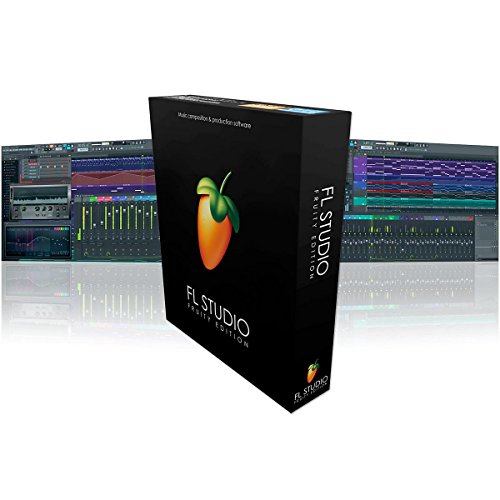 Are you making a start in music-making? Or are you someone making a return who might have forgotten the basics? If you're one of these, you're in the right spot. We've discussed some of the basics of music-making, such as which software is best suited for your needs, and how to grow your career in the music industry (if you're making music casually, then this portion is still for you). So, whether you want to learn music as a hobby, are semi -professional, or are looking to be the next music sensation, this section will benefit you in one way or another.
Are you making a start in music-making? Or are you someone making a return who might have forgotten the basics? If you're one of these, you're in the right spot. We've discussed some of the basics of music-making, such as which software is best suited for your needs, and how to grow your career in the music industry (if you're making music casually, then this portion is still for you). So, whether you want to learn music as a hobby, are semi -professional, or are looking to be the next music sensation, this section will benefit you in one way or another.
If you're a beginner musician, just learning the art involved in music-making, you should be careful with what you choose. We say this because we've come across many beginners who might have made it big, but couldn't. And that's only because they made some of the most basic mistakes in their entry-level - one of these mistakes being the choice of recording and editing software. The market is, indeed, saturated. All types of companies and brands are trying to sell their products to the masses. However, not every software out there will be suited for your needs.
So, before we go any further, let's start with what makes beautiful, soulful music; the killer combo of instruments (like guitars, violin, etc.) and vocals. Gone are the days when music was produced only with vocals and instruments. It's a digital age, and now you can create music using digital tools. Yes, we're talking about choosing a software that complements your creativity and skills to help you create magic. For those looking to start learning the tricks of the trade, we recommend the Image Line FL Studio 12 Producer Edition.
There is a lot to love about this product, so let us tell you the details of why this product is the most suitable for beginners. Firstly, a lot has changed in this software. All new, basic functionalities have been added – all this keeping the beginner level users in mind. This product is a result of years of hard work and experience. Developed by actual musicians, on this software, you will not only be learning the basics but also excelling with your skills.
There are certain steps involved in music-making, namely composing, arranging, recording, editing, and mixing – all these steps are made extremely easy, through Image-Line FL Studio. So, no matter what your skills are, you can produce music like pros with this software.
2. Intermediate/Semi-Professionals
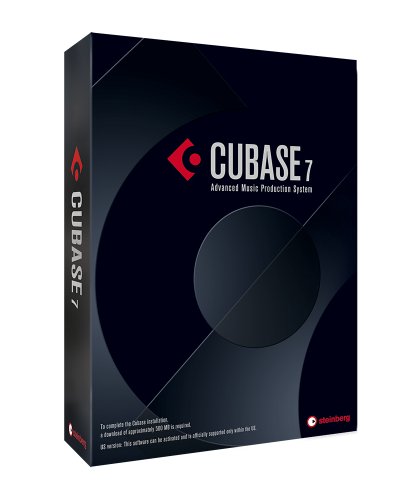 Alright! So, you know the basics and want to learn more? If you're in the intermediate stage, itching to produce great music to show people around you, you matter! We recommend our readers to be very careful at this stage. Why? Because you might try something at this point that's not suited to your skillset. You might feel like you know everything, but in fact, you don't. What you need is a reliable partner who can carefully take your skills to the next level. That is, help you climb the ladder from an intermediate stage to a professional stage.
Alright! So, you know the basics and want to learn more? If you're in the intermediate stage, itching to produce great music to show people around you, you matter! We recommend our readers to be very careful at this stage. Why? Because you might try something at this point that's not suited to your skillset. You might feel like you know everything, but in fact, you don't. What you need is a reliable partner who can carefully take your skills to the next level. That is, help you climb the ladder from an intermediate stage to a professional stage.
What we're going to give you here is exactly that; music-making software that will help you master those added skills you've been dreaming about, and create music that's bound to impress anyone. We're talking about one of the most technically advanced music making software – "Steinberg Cubase 7 Retail DAW Advanced Music Production System."
This amazing software is packed with every feature a semi-professional or an intermediate music producer could ask for. It takes your creativity to a whole new level, enabling you to produce breathtaking tunes. The overhauled mixing console is specially built upon the requirements of intermediate learners. It's neither too techy nor too basic. The different sounding instrument content that it contains helps you play around with lots of music, and create your own.
3. Expert
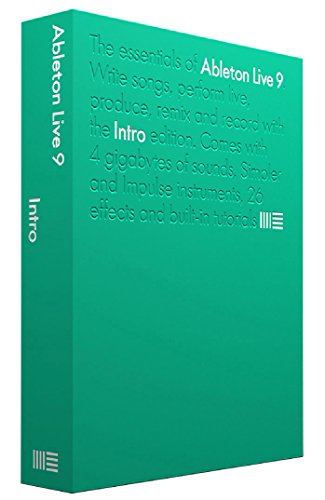 Music is an art, and there's no end when it comes to learning and exploring art. When you're a pro, or an expert musician, you'll realise that every day is an opportunity to learn and create something new. You're an expert because you know there's still a lot to learn, and you're always on the lookout for something new. At this level, what you need is something more reliable that can adjust to your work habits and environment.
Music is an art, and there's no end when it comes to learning and exploring art. When you're a pro, or an expert musician, you'll realise that every day is an opportunity to learn and create something new. You're an expert because you know there's still a lot to learn, and you're always on the lookout for something new. At this level, what you need is something more reliable that can adjust to your work habits and environment.
We introduce you to the Ableton Live 9 Suite. This software is a powerhouse when it comes to creating unrivaled music and performance on stage. The best thing about the Ableton Live 9 Suite is its ability to bridge the gap between live performance and studio sessions. Whatever you can do in the closed environment of your studio, you can do it live with this software as well. With Ableton, possibilities are endless.
If you liked the review, please leave your feedback.
figueroathallusithe.blogspot.com
Source: https://musiccritic.com/equipment/software/best-daw-recording-software/
0 Response to "Excellent but Easy to Used Recording Software"
Postar um comentário